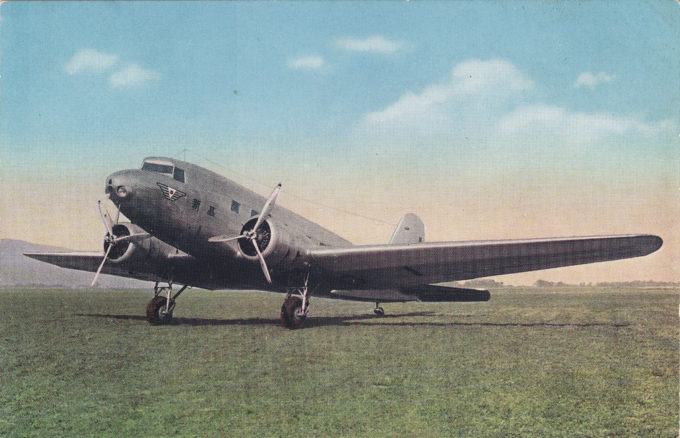“The Douglas DC-2 was a 14-passenger, twin-engined airliner that was produced by the American company Douglas Aircraft Company starting in 1934 to compete with the Boeing 247.
“Although soon overshadowed by the DC-3, the DC-2’s ubiquitous and venerated successor, it was the DC-2 that first demonstrated passenger air travel could be comfortable, safe and reliable.
“In the mid-1930s, the Nakajima Aircraft Co. obtained the rights to produce the Douglas DC-2 in Japan. The aircraft were operated by the three Japanese air carriers of the time: Japan Air Transport Co., Imperial Japanese Airways, Great Northern Airways. One flew for the Imperial Japanese Army Air Service where it was given the Allied codename ‘Tess’.”
– Wikiepdia
See also:
Nakajima AT-2 (Ki-34), 1937.
Nakajima Ki-27, “Nate”, 1936-1945.
Nakajima P-1 type night-mail delivery plane, 1934.
“There is a ‘local’ and an ‘express’ [air] service from Tokyo to Fukuoka, the jumping-off place at the lower tip of Japan proper.
“… The ‘local’ service operates an eight-passenger Fokker FVII-b 3M powered with three 225 h.p. Wright Whirlwinds, and stops at Nagoya and Osaka. The ‘express’ plane is a 14-passenger Nakajima-Douglas DC-2, Japan-built, engined with two 710 h.p. Wright Cyclones.
“… It’s a three hours and 40 minute non-stop flight to Fukuoka. And a beautiful flight it is, too … Mountain ranges are alternated with broad fertile valleys of irregularly-shaped rice-paddies, which from the air appear like some huge stained-glass window. The Inland Sea is followed below Osaka with its numerous islands each a bright green spot in a setting of unruffled blue.
“… There is a 30-minute stop here while our DC-2 is refuelled and groomed for the long over-water flight [to Formosa] ahead. At 11:10 a smartly-uniformed girl approaches and hands each one of us a lunch-box. Then:
“‘Dozo,’ she says politely. ‘Please.’ And she motions [us] to our plane.”
– “I Flew On a Japanese Airline”, by Harrison Forman, Popular Aviation, January 1939


